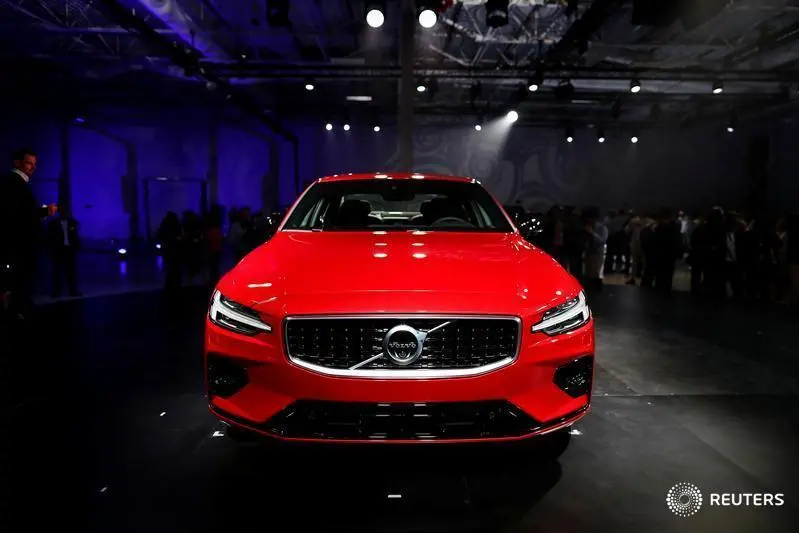PHOTO
STOCKHOLM - Volvo plans to cut fixed costs by 2 billion Swedish crowns ($214 million), it said on Thursday, becoming the latest carmaker to warn that pricing pressure and tariffs arising from the China-U.S. trade war were denting profitability.
Carmakers are under pressure from trade conflicts, hefty investments to develop electric and driverless cars and an overall downturn in the car industry, with warnings seen from Daimler and BMW.
Volvo has rejigged its global production plans in an effort to reduce the impact of tariffs and has begun a review of costs, which CEO Hakan Samuelsson told Reuters had led to hourly wage cuts and the elimination of 750 roles, mainly consultants.
He said this would lead to 1 billion crowns in savings from July, with the remainder of its promised savings expected to come from measures to be completed by the first half of 2020.
Second-quarter operating profit fell 38.1% to 2.6 billion, a worse quarter-on-quarter drop than first quarter.
Volvo said market conditions were expected to continue pressuring margins but it expected volume growth and cost measures to result in a "strengthened" second half compared to the final half of last year.
Volkswagen recently raised funds by listing its trucks group Traton after citing improved market conditions, but Samuelsson said reviving Volvo's stalled IPO was not on the cards.
He also said Volvo and Chinese parent Geely were no longer seeking funds for electric brand Polestar.
"We have the financing required to push through Polestar cars in the pipeline... so (external financing) is not something that is on our radar right now."
TARGET DENIED
Lower profits complicate the picture for the rollout of driverless cars, with carmakers slowing deployment to well beyond 2025 as delivery of such vehicles proves more expensive than expected and technological limitations raise safety concerns.
Volvo's robotaxi project with Uber was stalled for months after a pedestrian death despite having a safety driver.
Through its Veoneer joint venture, Volvo had planned to deliver a passenger car that could be autonomous on highways by 2021. When asked about that, Samuelsson said the car would be delivered "some years after 2020".
"Volvo will have a highway autopilot and it will be safe and it will be able to handle all situations when it's engaged. Exactly how often you can engage it and at what speeds will be revealed later on," Samuelsson said.
Volvo also has a deal with Chinese firm Huawei, which is still under partial U.S. sanctions.
Samuelsson said the actions against Huawei would have no impact on Volvo, which is using Huawei's app store in China, while relying on Google elsewhere in the world.
"We have a cooperation with Huawei, but it's not really about technology's access to their apps so we don't see any influence," he said.
($1 = 9.3609 Swedish crowns)
(Reporting by Esha Vaish in Stockholm; editing by Jane Merriman and Jason Neely) ((esha.vaish@thomsonreuters.com; +46 8700 1122, +46 70 721 1122; Reuters Messaging: esha.vaish.thomsonreuters.com@reuters.net; LinkedIn: http://in.linkedin.com/in/esha-vaish-9690b630))





















